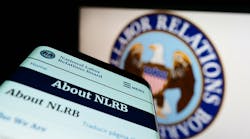We’ve crowned the customer king, and for good reason. The customer determines inventory strategy, facility location and just about everything else that forms the foundation of the supply chain. We readily adapt to the most demanding customer desires, even to the edge of impossible.
However, as management styles flex to new demographic realities, we may see a move from monarchy to diarchy, with the second king being the employee.
The leaders at Evans Distribution Systems would likely agree. Much has changed since John W. Evans’ grandfather founded the 3PL in 1929. Over its 79-year history, the business has evolved from a small, family-run operation into a full-service warehousing, packaging and transportation provider with more than 2 million square feet of warehouse space. Headquartered in Melvindale, Mich., the 3PL also operates full-service facilities in Suffolk, Va., and Devens, Mass. Most of the company’s more than 350 employees work in the Melvindale facility.
The business has been family-owned and operated for its entire history. Chairman John W. Evans recently passed along the business to his son, John A. Evans, president. Only 15% of family businesses last beyond the second generation, according to a June 2008 study conducted by Prince & Associates Trust and Campden Research, so Evans’ fourthgeneration success is truly remarkable.
The secret is flexibility. As the needs of Evans’ customers changed over the years, so too did its workforce. “Back in the day, people looked at their job as their career and forever,” says John A. “Today, young people don’t necessarily think their first job is for the rest of their life.” Getting them to stick around, then, is much harder than it used to be.
Evans’ marketing slogan is “It’s easier with Evans,” and this philosophy applies to the internal culture, as well. The company conducts year-round employee surveys to measure worker satisfaction. “We’ve always scored the highest, in fact, almost perfect, on being easy to work with,” says John A.
“We really preach how flexible we have to be with our customers,” he adds. “That same flexibility we give to our employees. For example, if someone worked really hard one day, we’ll let him take a few hours off the following week. We also allow some flexibility in schedules so they can make accommodations with family.” In addition, “they know that an honest mistake won’t be dealt with too harshly.”
This willingness to adapt to the needs of its workforce is one of the reasons Evans enjoys low
Senior Editor mary.aichlmayr @penton.com
turnover and high productivity rates. A productive workforce responds most effectively to customer demands. The lesson: Take care of employees, and they will take care of customers.
This management style has worked so well for Evans that it has become a side business. About five years ago, the company started a professional staffing service. Now, in addition to logistics services, the company recruits and educates its customers’ employees.
“We rely on integrity, honesty and good communication to make this a good place to work,” says John W. “Employees feel what they are doing and the decisions they make really mean something,” adds his son. “We treat our employees with the same respect we show our customers.”
Maybe Herbert D. Kelleher, founder of Southwest Airlines, was on to something when he said: “You have to treat your employees like customers.” It may be time to crown another king.




